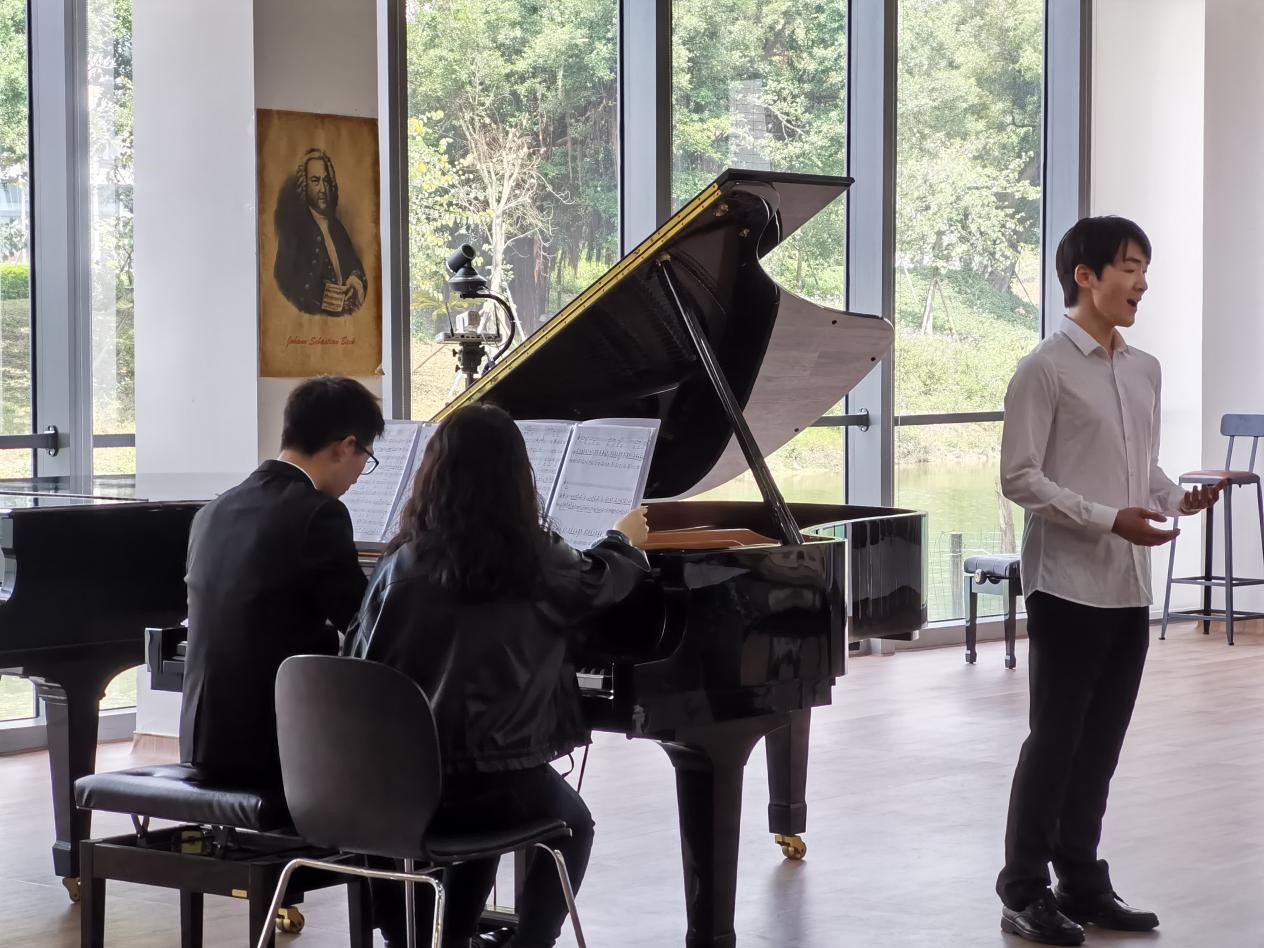If you’re passionate about music and seeking the perfect harmony between education and culture, you’ve struck the right chord by considering China as your destination. China’s musical heritage tells a captivating story dating back to ancient times, when legendary figures crafted melodies that echoed the songs of birds. It has evolved through the centuries with a variety of tones, spanning from traditional opera to contemporary global trends.
Now, China’s musical potential is drawing the attention of many international students who find enriching music opportunities in the country’s conservatories and world-class universities. If you’re a prospective student considering studying a music degree in China, this article will shed some light on what you can expect.
China’s Musical History
China’s musical heritage dates back to ancient times. According to legends, the founder of music in Chinese mythology was Ling Lun, who was celebrated for crafting bamboo pipes that harmonized with the melodies of birds. Archaeological discoveries have revealed bone flutes and clay instruments dating back centuries.
During the Zhou dynasty (1122 BC – 256 BC), a formal system of court and ceremonial music called “yayue” was established, setting the tone for the development of music in the following dynasties. Chinese music history can be divided into four major periods: the formative period, the international period, the national period, and the world music period. Each period reflects the social, political, and cultural changes that influenced the musical styles and genres of China.
In traditional Chinese culture, music held a prominent role, serving as a means of expression in rituals, festivals, and storytelling. Chinese traditional opera also holds a revered place, with its distinctive regional variations, such as Peking opera and Sichuan opera, showcasing a unique fusion of music, singing, acting, and elaborate costumes. China’s modern music industry has also gained international recognition and contributed to global music trends, for example with C-Pop, TikTok, EDM and Chinese classical music. This fusion of ancient and modern influences makes studying music in China a truly rewarding experience.
Music Education in China
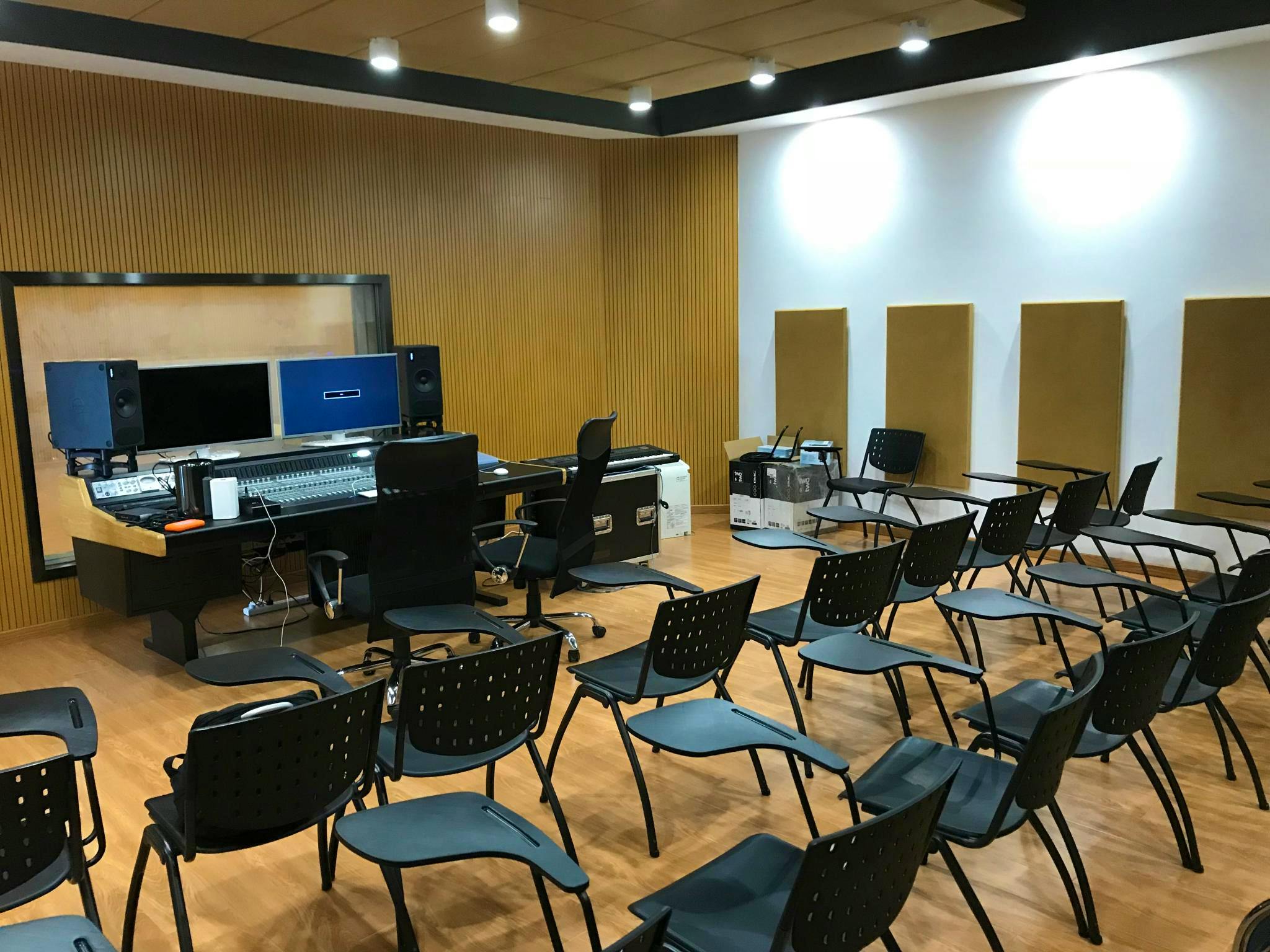
Studying music in China can offer international students a unique opportunity to learn about the history, theory, instruments, genres, and practices of one of the oldest and most highly developed musical systems in the world. Music education in China has also undergone significant transformations, especially in the modern era. During the 1990s, education reforms recognized music education, leading to the development of school music education and the rising status of music teachers (as well as better teacher education).
Today, there are three major forms of higher music education in China:
- traditional professional music education (conversatories)
- normal music education (teacher music education)
- music education in comprehensive universities (universities music education)
Traditional conservatories prioritize training music elites, while normal universities often focus on training music teachers for primary and secondary schools. Comparatively, comprehensive universities aim to provide extensive music education that focuses on developing highly skilled performers, educators, and arts managers. Their courses are generally four years long and based on a credit system.
Music education in China emphasizes social harmony and national unity. Music is seen as a powerful tool for fostering moral education, cultural awareness, and patriotic sentiments. It’s not just about technical skills; it’s about creativity, innovation, and excellence in musical performance and composition. Music programs cover a wide range of genres and styles, from traditional Chinese and Western classical music to world music and pop. You can learn to play a variety of Chinese and Western instruments, as well as sing in different languages and dialects.
Benefits of Studying Music in China
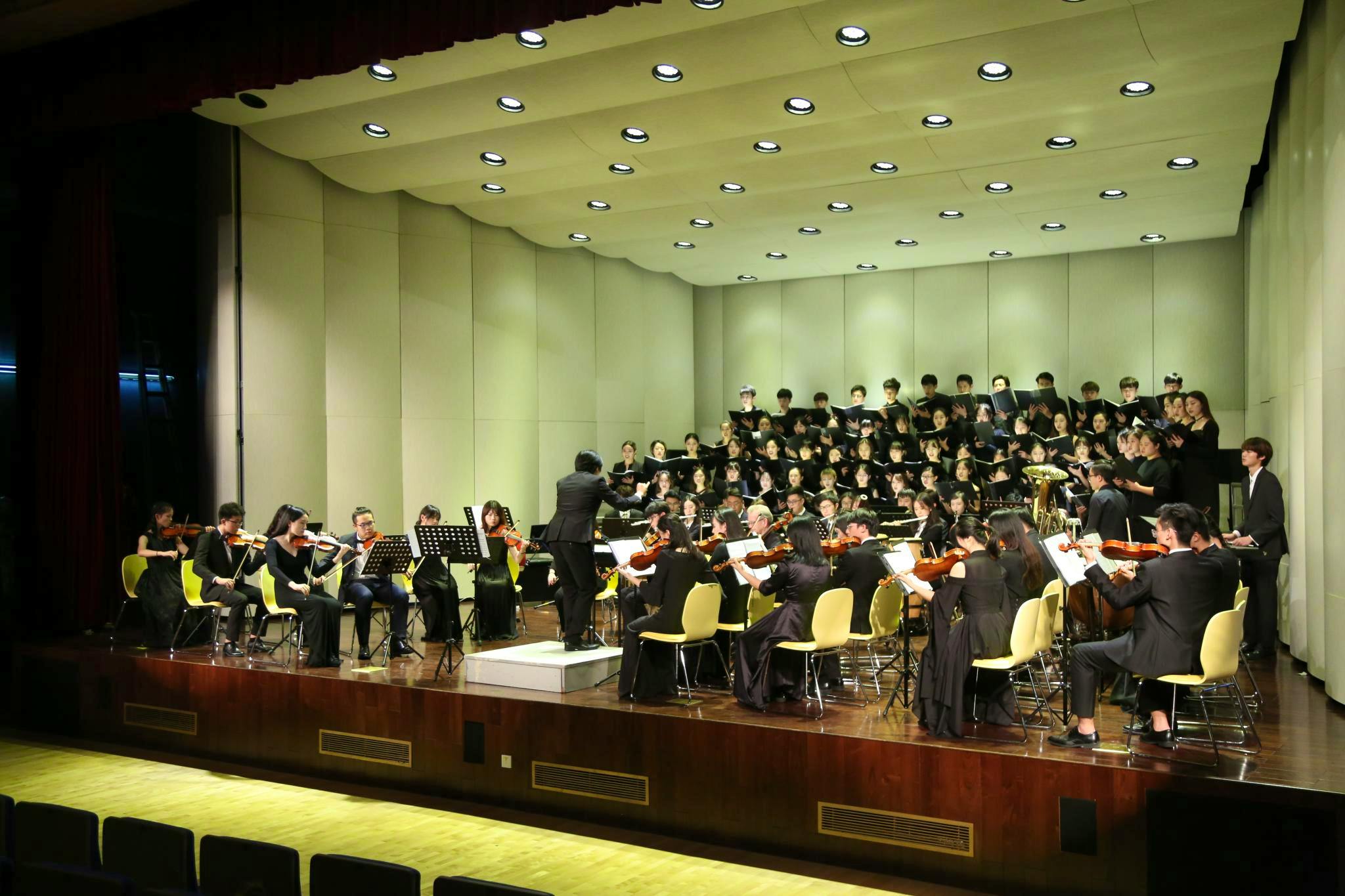
Studying music in China offers several benefits that can help international students stand out in the global job market. Here are some of the key benefits:
- Exposure to a New Culture: By immersing yourself in a new culture and learning about different musical traditions, you will broaden your musical horizons. This could inspire you to create new and innovative music.
- Learning from Experienced Professors: China has a rich history of music, and many of its universities have experienced professors who are experts in various musical genres.
- Gaining a Competitive Edge: With the rise of globalization, the job market has become increasingly competitive. Your advantage will be a unique perspective on music that is different from what is taught in other countries.
Career Pathways
There are over 75 career professions for music graduates in China, including:
- Vocal or Instrumental Soloist
- Recording Artist
- Session Musician
- Background Vocalist
- Orchestra, Symphony, or Group Member
- Performing SInger-Songwriter
- Performing Artist
- Broadway (Musical Theater) Performer
- General Business Musician
- DJ/EDM Performer – Synthesist
- Professional Accompanis
Study Music at United International College (UIC)
 One of the institutions that offers a high-quality and comprehensive music program in China is United International College (UIC), located in Zhuhai, Guangdong province. UIC is a joint venture between Beijing Normal University and Hong Kong Baptist University, and the first full-scale cooperation in higher education between mainland China and Hong Kong. UIC offers a liberal arts education that combines the best of both Chinese and Western cultures, and with English-taught courses that attract international students from around the world.
One of the institutions that offers a high-quality and comprehensive music program in China is United International College (UIC), located in Zhuhai, Guangdong province. UIC is a joint venture between Beijing Normal University and Hong Kong Baptist University, and the first full-scale cooperation in higher education between mainland China and Hong Kong. UIC offers a liberal arts education that combines the best of both Chinese and Western cultures, and with English-taught courses that attract international students from around the world.
The Music Performance Program
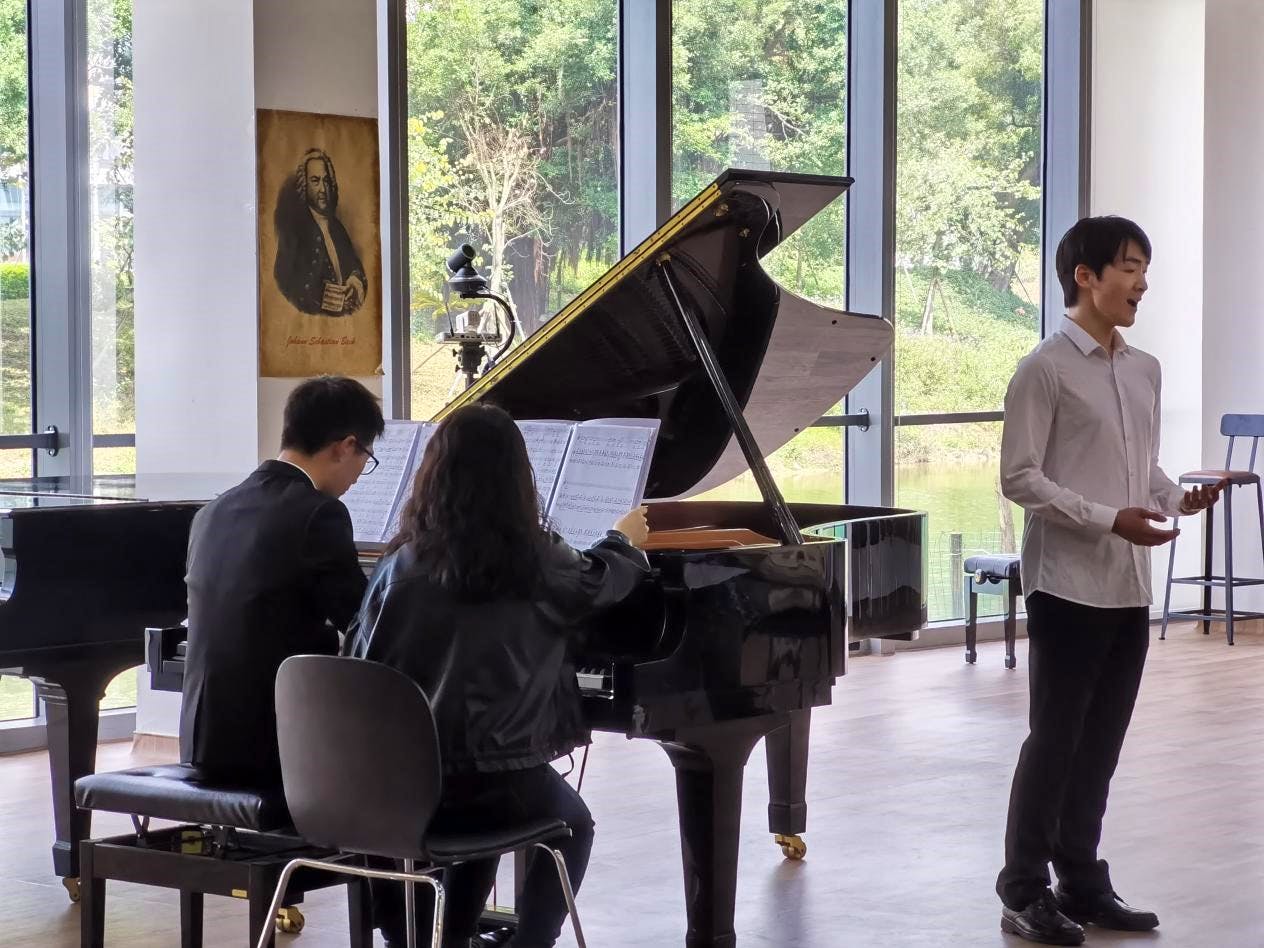
Part of the School of Culture and Creativity, UIC’s Department of Music was founded in 2020. It offers a Bachelor of Arts in Music Performance, which provides students with advanced skills and deep knowledge of instrumental playing and helps them become creative graduates with an international outlook and extensive skill sets.
The program’s core courses cover the basic skills and knowledge of music, such as theory, history, ear training, and keyboard. The major courses focus on the specific area of music that the students choose, such as vocal, instrumental, keyboard, or composition, while the electives offer a chance to explore other topics and styles of music, such as jazz, rock, pop, musical theater, and Chinese traditional music. Learn more about the curriculum here. 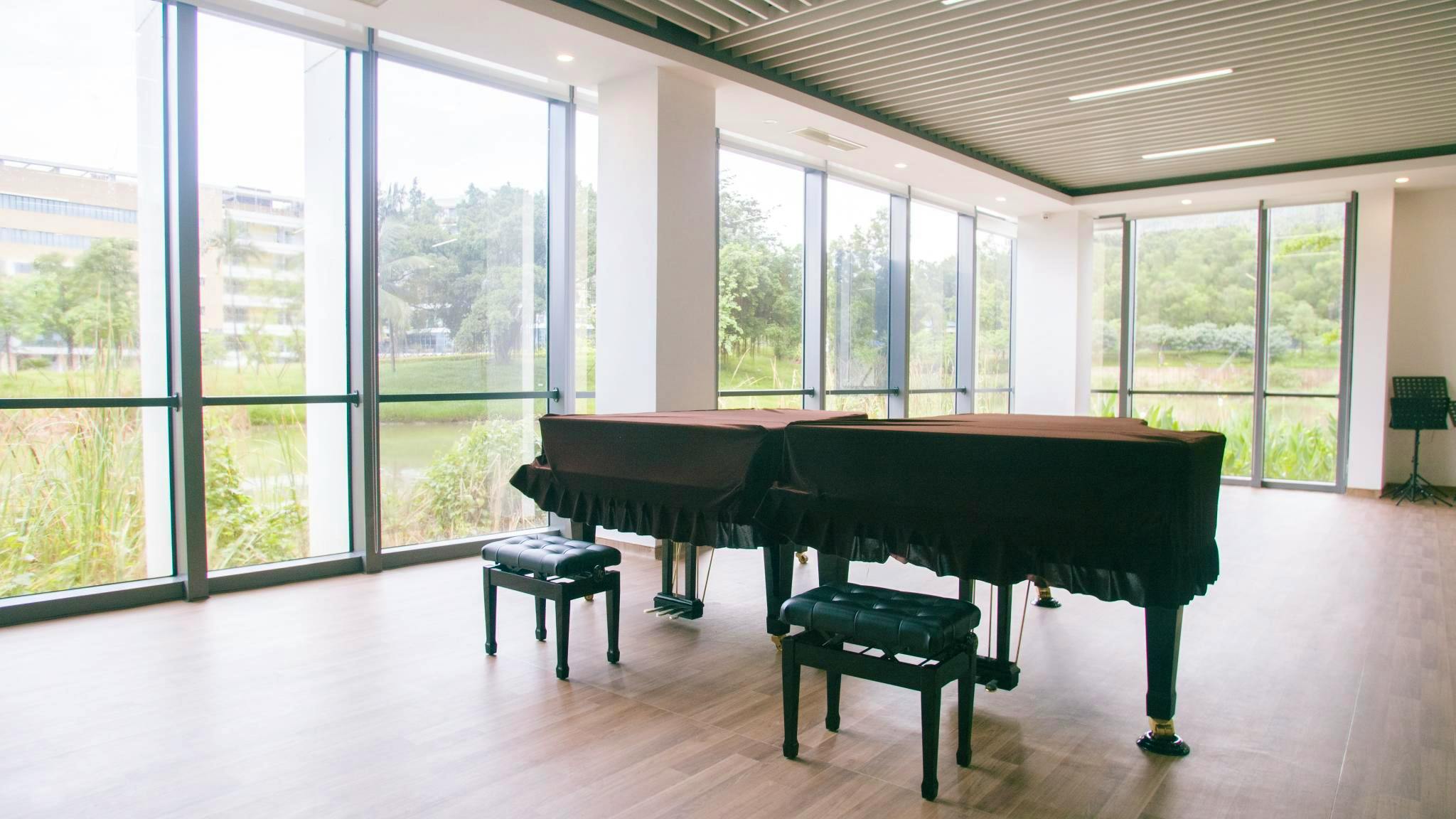 The faculty at UIC’s Department of Music come from around the world with diverse backgrounds and advanced qualifications. It is led by Professor Tom Stein, an international musician and leading music educator who previously taught at the Berkeley College of Music in Boston for 38 years.
The faculty at UIC’s Department of Music come from around the world with diverse backgrounds and advanced qualifications. It is led by Professor Tom Stein, an international musician and leading music educator who previously taught at the Berkeley College of Music in Boston for 38 years.
Music Facilities

Students are UIC are provided with the best facilities and environment to help them practice and perform. The School of Culture and Creativity features practice rooms equipped with Steinway pianos, Pro Tool recording and media studios, and acoustic superb performce venues including rehearsal studios and concert halls.
For more information, don’t miss this presentation
If you’re passionate about the idea of studying music in China, United International College’s Music Program will not only broaden your musical horizons but also provide you with a unique perspective on music that can set you apart in the global job market. Learn more and apply for the program with ease through the China Admissions platform.
- Juggling Life’s Commitments: Tips from a TIEMBA Alumna and Working Mother - October 19, 2024
- How TIEMBA Alumni are Making an Impact in the World - October 3, 2024
- Here’s What Ethnic Minority Students Are Saying About HKMU - July 14, 2024
